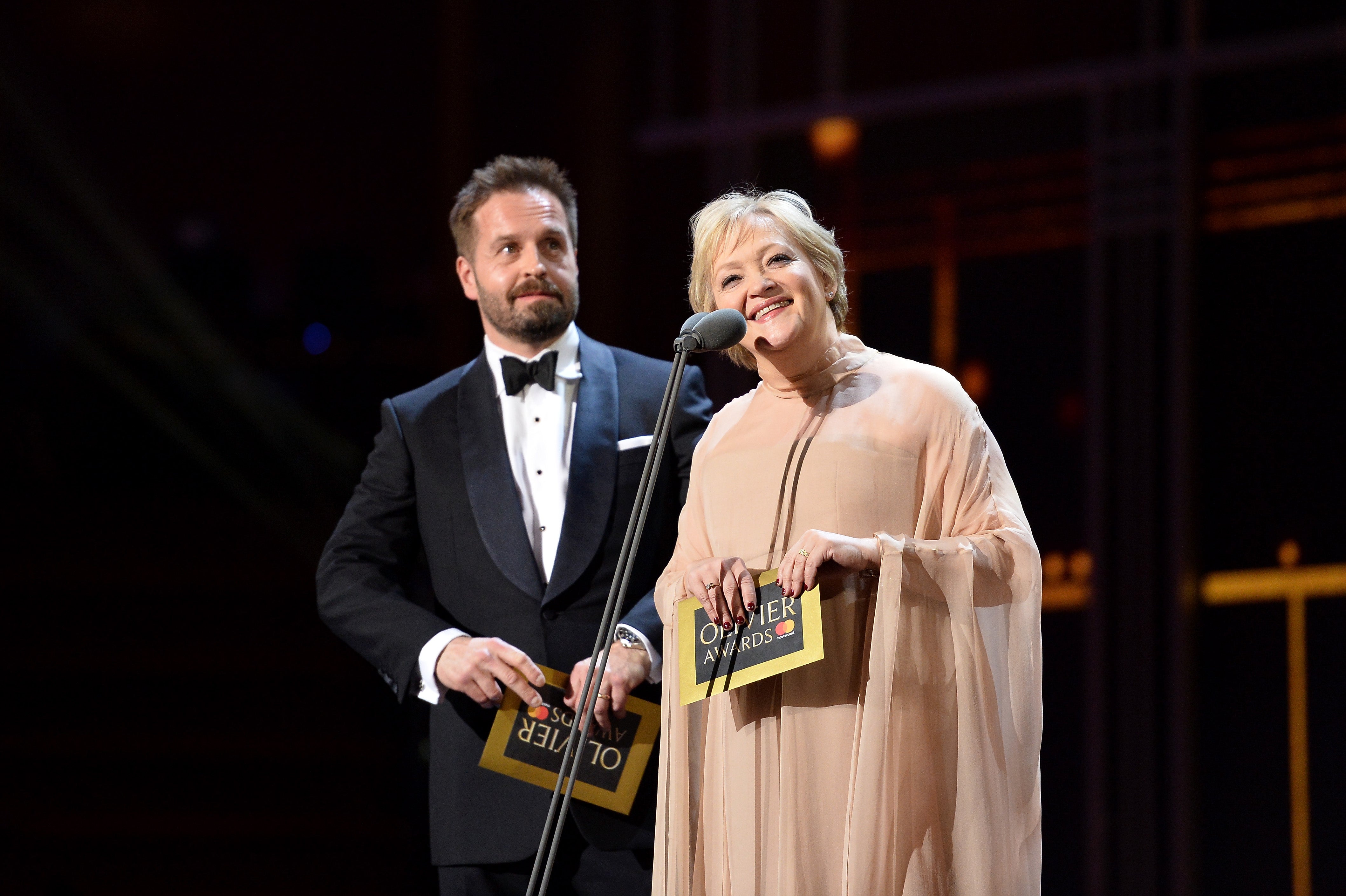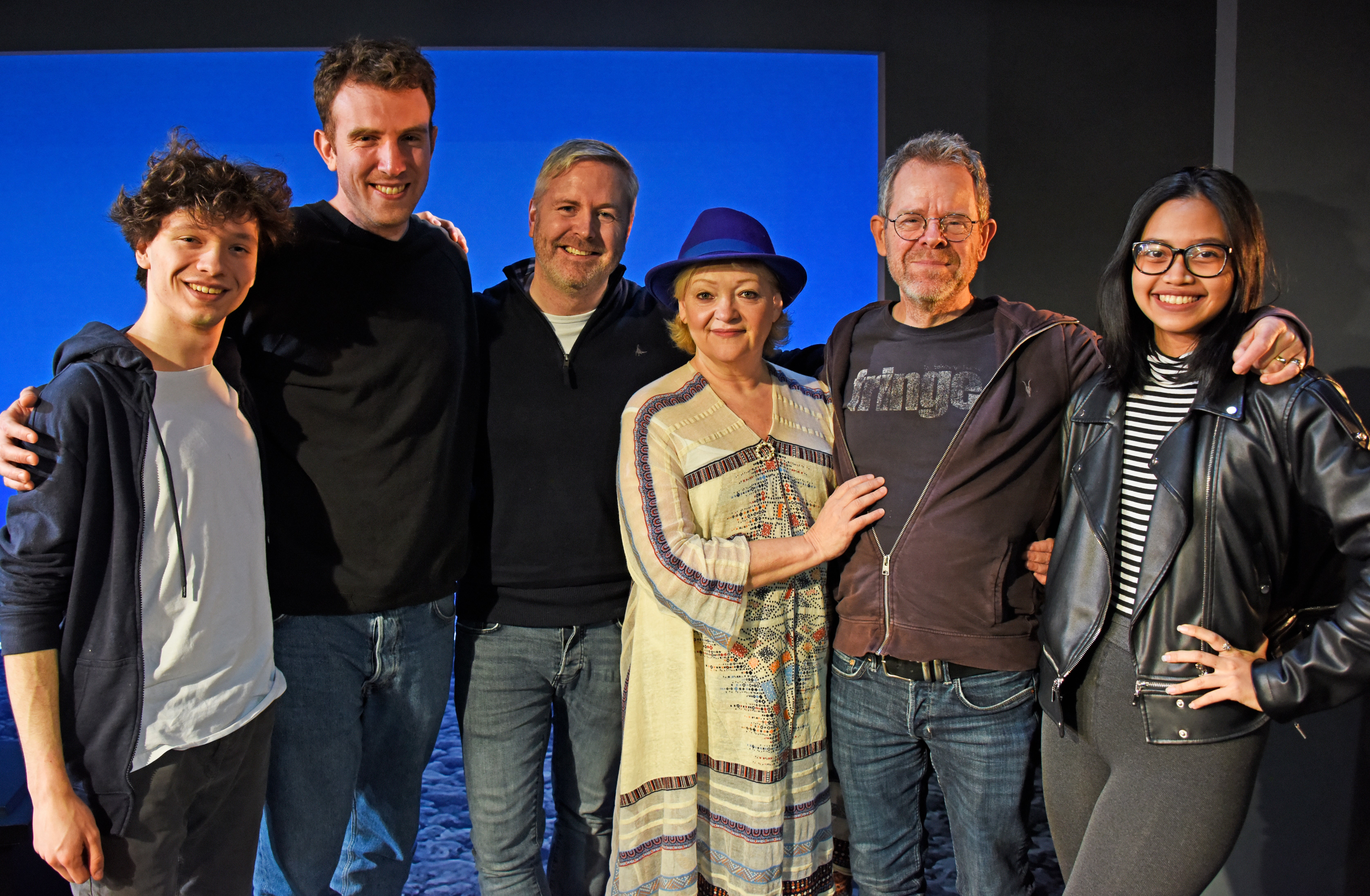Maria Friedman: ‘One year you can be winning awards, the next year nothing because you’ve reached 45’
The three-time Olivier winner is returning to the stage with a new show celebrating the music of her friends and collaborators Stephen Sondheim, Michel LeGrand and Marvin Hamlisch. She speaks to Isobel Lewis about their lives, dyslexia and roles for women on stage


Your support helps us to tell the story
From reproductive rights to climate change to Big Tech, The Independent is on the ground when the story is developing. Whether it's investigating the financials of Elon Musk's pro-Trump PAC or producing our latest documentary, 'The A Word', which shines a light on the American women fighting for reproductive rights, we know how important it is to parse out the facts from the messaging.
At such a critical moment in US history, we need reporters on the ground. Your donation allows us to keep sending journalists to speak to both sides of the story.
The Independent is trusted by Americans across the entire political spectrum. And unlike many other quality news outlets, we choose not to lock Americans out of our reporting and analysis with paywalls. We believe quality journalism should be available to everyone, paid for by those who can afford it.
Your support makes all the difference.In the last months of Stephen Sondheim’s life, Maria Friedman went to see him with a bunch of grapes and a bottle of vodka. The two of them were great friends – Friedman, an eight-time Olivier nominee, had starred in many of the composer’s musicals – and she thought it might cheer him up. But when she turned up, he told her that doctors had banned him from sugar and alcohol. Even in those moments, she says, he was “still really twinkly and laughy and naughty”. If you met him, it was clear that he was “somebody that mattered in a deep way”. She smiles. “I don’t know what I would have done without Stephen Sondheim.”
I meet Friedman at the Menier Chocolate Factory, where she’s in rehearsals for her new show Legacy. Part-concert, part-talk show, it sees Friedman and friends performing the music of famed composers Michel LeGrand, Marvin Hamlisch and, yes, Stephen Sondheim. Friedman has performed and directed at the Menier many times, and you can tell she feels comfortable here. Sat opposite me on a low sofa, she rarely breaks eye contact for a second, yet is incredibly warm and funny. At the end of our conversation, she tells me that she loves the knickers I’m wearing, which makes me slightly panic until I realise she means my jumper, which actually says “Kickers”.
It’s no exaggeration to call Friedman, 61, a legend of the theatre scene. She won three of those eight Olivier nominations, and has performed one-woman cabaret shows in the West End and Broadway and directed productions in the US and Japan. To a generation of Christian school-going kids, she’s best known as the Narrator opposite Donny Osmond in the film version of Joseph and the Amazing Technicolour Dreamcoat. On stage, she originated roles in the London productions of Sondheim’s Passion, Stephen Flaherty’s Ragtime and Andrew Lloyd Webber’s The Woman in White, the latter of which she took to Broadway but had to leave after being diagnosed with breast cancer. In recent years, there’s been a return to the screen as Linda Carter’s mother Elaine in EastEnders.
In many ways, performing has always been in Friedman’s blood. Born to a concert pianist and violinist, she spent the first five years of her life in Switzerland and Germany before returning to England when her parents split up. From a young age, Friedman says she was “always the odd one out” and “very behind” academically. She left school at 15 with one GCSE to a quick-changing stream of service jobs. She was fired from a fair few of them, she says, at one point ending up in hospital “with a duodenal ulcer at 16 because I hadn’t got enough food”.
The Friedman family were middle class but “broke”. One thing her parents gave their kids, however, was a sense of possibility. They were never told there were boundaries. “We were inquisitive, curious people, but we weren’t given a lot of rules, so the world was sort of open,” she says. “We just didn’t see the obstacles. ‘Oh, that looks nice… I’m sure I could do that’... It’s not like I wanted to be in musicals or I wanted to be a theatre person. It was just something I fell into.”
Theatre quickly incorporated itself into Friedman’s life. Legacy, in many ways, is a homecoming, a celebration of the men who “made my life” with their work. Not only were the three composers huge musical inspirations, but they were her friends. The concert comes months after Sondheim’s death rocked the world of musical theatre, but Friedman was close to all three and regales stories about all of them – their fun sides and flaws, their triumphs and tantrums. “[They were] so much more than just the music but I feel them in these stories, I feel the humanity and all their naughtiness,” she says. “They were certainly not perfect people, but who is?... For all these people, music saved them.”
There’s a particular softness when Friedman talks about Sondheim. He mentored one of her sons and is godfather to the other, and I worry that discussing him may be too hard. But Friedman is generous with her stories, perhaps as an extension of the way Sondheim was with his life. “He would cry when he talked about teaching, what you can do, what you can offer somebody who might feel trapped or shut or whatever and just watch that thing just open up and grow and blossom,” she says. “He took it massively seriously.”

What kept audiences coming back to Sondheim again and again is his work’s ability to feel fresh and new. In 2018, he gave his blessing for Marianne Elliott to produce a gender-swapped version of his hit musical Company (Bobby with a y becoming Bobbie with an ie) in the West End, which is one of the best things I’ve ever seen on stage. The production finally opened on Broadway in December to rave reviews after long delays due to the pandemic.
While Friedman is pro the gender-swapping thing, she isn’t able to call to mind any particular male parts she’d like to have a crack at were they rewritten. She scans the signed musical posters behind me for inspiration. No luck. Still, she certainly knows about a lack of good roles for women. In many ways, she says, she was “lucky” when she was younger because “I wasn’t drop-dead gorgeous, so I did get the character roles”. Things, sadly, have not improved very much.
“I’ll tell you when it was really difficult – it’s when you hit 45,” she says. “I looked younger than my age – at 42 I was paying a 28-year-old, for God’s sake – and then you kind of go, ‘What is there?’ It’s not an unusual story in any industry, but the difficulty with our industry is you don’t have a career structure… with us, we literally can just get wiped out. One year, you can be winning awards, everything – the next year, nothing because you’ve reached that age.”
Now that she has more power in the industry, accessibility is at the top of her priority list. She turned to directing, she says, out of necessity – a desire to be around to tuck her kids in at night. Rehearsals for Legacy are short and tightly packed, with children, pets, the lot welcome. She is also careful to not exclude people who have difficulty reading. She reckons that, were she a child in 2022, she might have been diagnosed with dyslexia – words having a tendency to “sometimes dance about” on the page before her.

“When I direct and I’m auditioning people, I can spot [people with dyslexia] like that,” she says. “I always give enough time to let them settle to a point where they’re doing what they wanted to do when they were at home… I quite often say, ‘Are you dyslexic?’ And every single time I’m right.”
Anything to make life easier for young artists. Legacy features collaborations with young singers from around the world, while Friedman’s 19-year-old son Alfie (soon to appear opposite Mark Rylance and Simon Pegg in Channel 4’s The Undeclared War) also joins her on stage. As both a parent and a mentor, how does she feel about comments made by her former collaborator Andrew Lloyd Webber that young actors should remember they work in a “service industry” and that “nobody has a right to be on stage”?
His way of putting it is a little dry, she says, but she largely agrees. “Every time I go on stage, I remember that the audience might have had a row with their husband, not been able to park, it’s expensive – my duty is to give them the very best of myself,” she says. “So I would say it’s an offering. You need to be generous. You need to be disciplined in terms of just keeping it fresh. So a service industry, yeah, I would say, if you want to call it that… You bloody well better take it seriously because we can do wonderful things with words and music.”
‘Maria Friedman & Friends: Legacy’ runs at the Menier Chocolate Factory until 17 April



Join our commenting forum
Join thought-provoking conversations, follow other Independent readers and see their replies
Comments